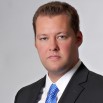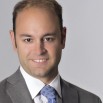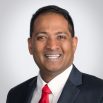October 23, 2014
Rare Grant (in Part) of an IPR Motion to Exclude
Motions to Exclude Evidence have been one of the features of inter partes review practice that have, to date, had a less significant effect than expected. Very few motions have been granted, largely because the Board constructs its Final Written Decisions so as to not rely upon any disputed evidence. As such, motions are often denied as moot. Because the grant of such motions is so rare, we address such a grant that was issued in Corning Inc. v. DSM IP Assets B.V., (IPR2013-00043 and IPR2013-00044), wherein Petitioner moved to exclude evidence and portions of an expert’s declaration.
Petitioner argued in its motion that Patent Owner’s expert testimony relied on experiments that contain hearsay. Id. at 3. More specifically, Patent Owner’s expert relied on various documents generated in Patent Owner’s research laboratories that were created after the filing of the petition and report information relating to particular experiments performed by Patent Owner (such as preparation of samples, chromatography data, viscosity measurements, etc.). Id.
In rebuttal, Patent Owner argued that the documents, while hearsay, are admissible based on the “business record” exception to the hearsay rule. Fed. R. Evid. 803(6). Id.
The Board found the records-at-issue were excluded because they did not fall within the “business rule” exception. Id. Applicable Federal Circuit and Board precedent declines to invoke a Rule 803(6) exception to a laboratory notebook documents and laboratory generated data of properties of compositions experimentally made in laboratories. Further, “conducting specific and unique scientific experimental work is not ‘a regularly conducted activity.’” Id. at 5.
All was not lost, however, for Patent Owner. Despite the fact that Patent Owner cannot have the exhibits admitted under Rule 803(6), its expert was allowed to rely on them in forming his opinion. Id. To that end, Rule 703 provides in part: “An expert may base an opinion on facts or data in the case that the expert has been made aware of or personally observed. If experts in the particular field would reasonably rely on those kinds of facts or data in forming an opinion on the subject, they need not be admissible for the opinion to be admitted.”
Because the documents-at-issue were not shown to be unreliable, the evidence of the experiments is excluded as hearsay, but the expert’s related testimony was admissible. Id. at 8.

































